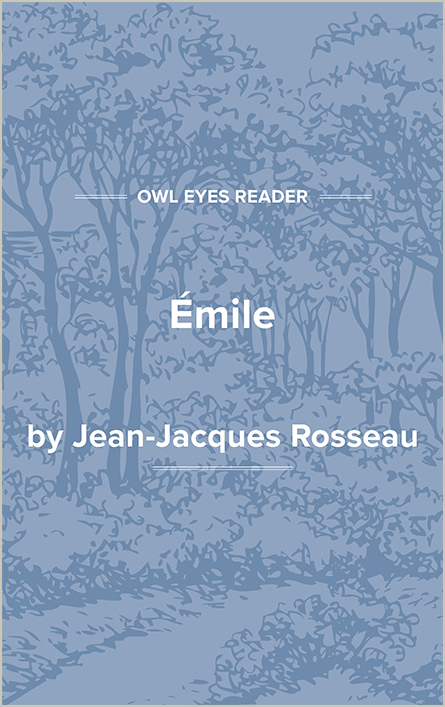Study Guide
Jean-Jacques Rousseau Biography
Article abstract: Rousseau helped transform the Western world from a rigidly stratified, frequently despotic civilization into a predominantly democratic civilization dedicated to assuring the dignity and fulfillment of the individual.
Early Life
Jean-Jacques Rousseau was born of middle-class parents in the fiercely independent Protestant municipality of Geneva. His mother, the former Suzanne Bernard, died within days of his birth, and he was reared until age ten by his watchmaker father, Isaac Rousseau, with whom the precocious boy shared a passion for romantic novels, a passion that helped shape Jean-Jacques’s emotional and highly imaginative nature. Young Rousseau and the irresponsible Isaac often neglected sleep as they devoured their beloved romances, an escapist reading regimen that Rousseau supplemented with more substantial works by such writers as Plutarch and Michel Eyquem de Montaigne.
This earliest phase of Rousseau’s life came to an abrupt end when his father was forced to flee from Geneva to escape imprisonment for wounding a former military officer during a quarrel in the autumn of 1722. Left in the care of a maternal uncle, Rousseau was soon placed, along with his cousin Abraham Bernard, in the home of the Lambercier family, a Protestant minister and his sister, in the village of Bossey, a few miles outside Geneva.
The essentially carefree two years spent with the Lamberciers were followed by a short period of distasteful employment with the district registrar, and a longer apprenticeship to an engraver. Petty thefts and other breaches of discipline earned for Rousseau, now in his teens, a series of beatings that in no way altered his recalcitrant behavior but instead augmented his hatred of authority. After nearly three years of these confrontations, in March of 1728, he abandoned his apprenticeship and, with it, his native city.
Rousseau was introduced to twenty-nine-year-old Madame de Warens, eventually to be one of the great loves of his life, who sent the destitute and still-directionless teenager to Turin’s monastery of the Spirito Santo, where, within a few days of his arrival, he found it expedient to embrace the Catholic faith. Released into the streets of Turin with little money, Rousseau held several jobs but eventually returned, probably by mid-1729, to Madame de Warens.
Rousseau’s duties as record keeper to Madame de Warens were light enough to allow him ample time for wide reading, but his genius still had not manifested itself, and after his patron left on a journey to Paris, the aimless youth took the opportunity to add to his ample store of life adventures. At Lausanne, he attempted, despite insufficient knowledge of music, to conduct an orchestral work of his own composition; the performance was a fiasco.
Succeeding months saw Madame de Warens establish herself as Rousseau’s mistress and Rousseau busy himself with the study and teaching of music. Over the next several years, Rousseau also undertook the intensive study of most other branches of human knowledge in an eminently successful effort to overcome the handicap of his earlier haphazard education.
Life’s Work
By 1740, Rousseau had begun serious attempts to write, but he remained essentially unknown. His first minor recognition came in 1742, during his second visit to Paris, when he suggested a new method of musical notation to the Academy of Science. Although the method was judged inadequate, Rousseau’s presentation earned him the respect of and eventual introduction to several figures of importance in the French intelligentsia, most notably philosopher Denis Diderot. In 1743, at the salon of Madame Dupin, Rousseau widened his circle of influential acquaintances, and eventually he became Madame Dupin’s secretary.
While traveling to Vincennes to visit Diderot, who had been imprisoned in 1749, Rousseau happened across an essay competition that would ensure his lasting fame. Had the advancement of science and art, the Academy of Dijon...
(The entire page is 2,036 words.)
Owl Eyes subscribers get unlimited access to our expert annotations, analyses, and study guides on your favorite texts. Master the classics for less than $5/month!

